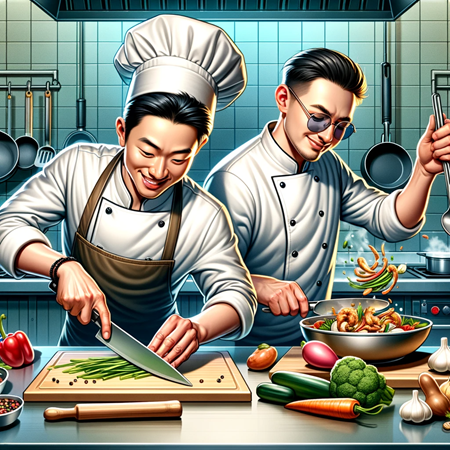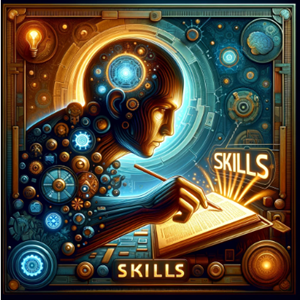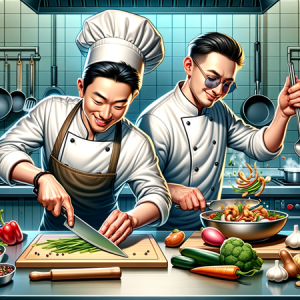
1. Objective:
The objective of this lesson is to equip learners with the ability to adapt and evolve their cooking skills in the face of changing trends, dietary preferences, and environmental conditions. By the end of this lesson, learners will be able to:

– Identify and respond to new trends in cooking and eating habits. – Adjust cooking methods to accommodate different dietary restrictions and preferences. – Incorporate sustainable practices into their cooking routine. – Utilize alternative ingredients effectively when traditional ones are unavailable. – Apply creative problem-solving techniques to overcome cooking challenges presented by changing environments.
2. Comprehensive Content Overview:
Cooking skills encompass a wide range of competencies, from basic knife skills to the complex art of flavor balancing. In this ever-changing world, cooks must also learn to adapt to new technologies, dietary needs, and ecological concerns. This lesson will cover how to stay current with culinary trends, substitute ingredients, cater to various diets, and reduce environmental impact while cooking.
3. In-depth Explanations with Actionable Insights:
To adapt cooking skills effectively, one must understand the reasons behind changing trends and conditions. This involves staying informed about food sustainability issues, nutrition science, and global cuisines. A practical approach includes:
– **Experimenting with Plant-Based Proteins**: With the rise of veganism, learn to use lentils, chickpeas, and tofu. For example, ...








